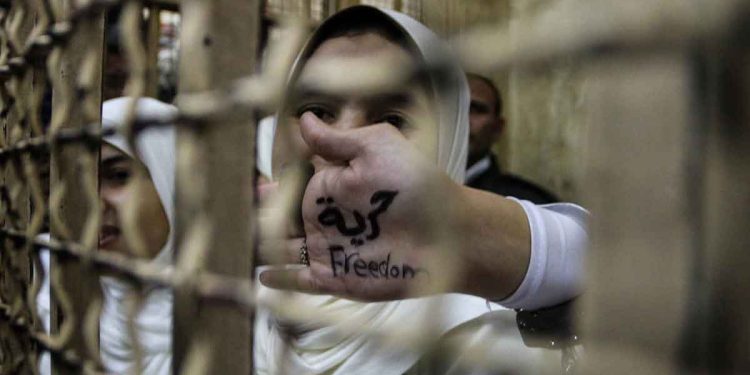In Egypt, the health of prisoner of conscience Maha Othman, 31 years-old, has deteriorated. Othman is being held in al-Qanater Women’s Prison, where she is being subjected to deliberate medical neglect.
She suffers from heart disease and blocked arteries, and from numbness in her left arm and foot.
The facility’s doctor had stressed that Othman requires a full examination outside the prison medical unit as a matter of urgency, given the clinic’s lack of facilities.
Othman is being subjected to deliberate medical neglect: she receives no treatment other than painkillers, in addition to having been subjected to beatings and other forms of torture on more than one occasion during her detention.
The Egyptian authorities arrested Othman in front of her six children on 30 June 2018, in the coastal city of Damietta. In November 2019 she was sentenced to 15 years in prison.
During her trial before a military court, on charges of both financing and joining a proscribed organisation, Othman said: “Who has brought me here? I have no political affiliation, and I am the only woman in this case — the details of which I am not even aware of.”
Prisoners of conscience systematically suffer from medical neglect within the Egyptian prison system, which do not meet international standards as detention sites suitable for human beings. Massive overcrowding, malnutrition, a lack of lighting and ventilation, appalling hygiene — including the spread of insects — are all features of the system.
Since President Abdel Fattah al-Sisi assumed power in 2013, the Egyptian authorities have waged an unprecedented crackdown on dissidents, detaining thousands after politically-motivated arrests and unfair trials. Many continue to be held without trial for years, often on baseless terrorism-related charges.






























